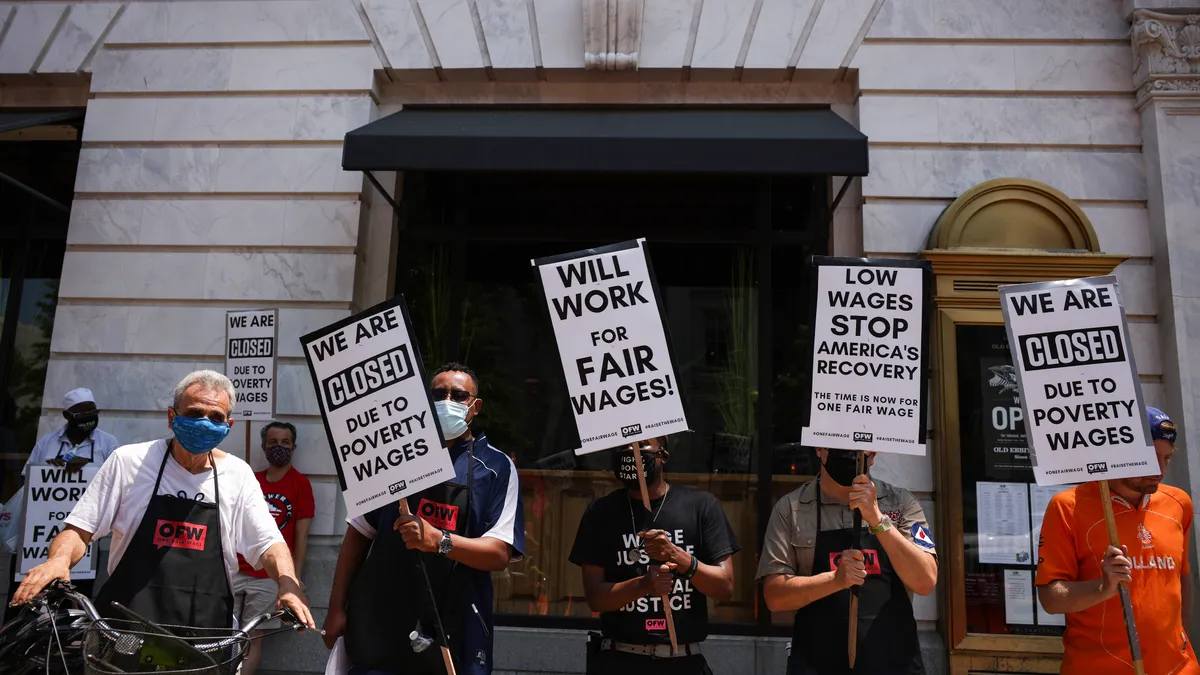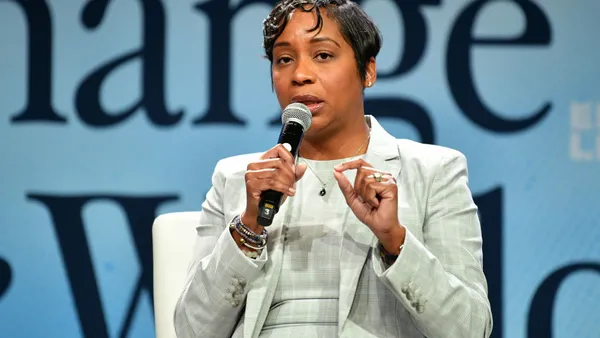Dive Brief:
- In a survey of more than 1,000 workers, One Fair Wage found significant pay discrepancies along race and gender lines among tipped workers.
- Fifty-three percent of Black women surveyed by OFW reported tips didn’t cover the difference between subminimum wage and minimum wage at least once a month, compared to about 38% of White men.
- One Fair Wage’s survey indicates longstanding racial disparities in the foodservice labor market haven’t resolved as a result of the ongoing labor market recovery.
Dive Insight:
One Fair Wage, a labor organization advocating for the abolition of the tipped minimum wage, argued that racial discrepancies in wages means Black women working in front-of-house foodservice roles generally earn $2.57 an hour less than White men working similar jobs. OFW’s report shows about 22% of Black women working in tipped restaurant positions said their tips didn’t cover the difference between subminimum and minimum wage on a daily basis, compared to about 10% of White men.
Despite this discrepancy, OFW found that Black women were less likely than other workers to be considering leaving restaurant work, with 36% of Black women considering leaving the industry compared to 41% of White men. A net of 108,144 Black women left the restaurant industry between 2020 and March 2022, according to a One Fair Wage analysis of employment data from the census’ current population survey emailed to Restaurant Dive.
While many workers may be considering leaving the industry, the foodservice labor market has eased in recent months. Employment in the sector hovered at about 11.7 million workers in July and August, and wages have been stagnant or declining for nonsupervisory workers since May, according to the U.S. Bureau of Labor Statistics. The industry’s unemployment rate, a key indicator of labor market conditions, jumped from 5.1% in July to 6.3% in August.














